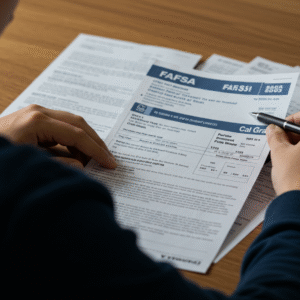This article may contain references to products or services from one or more of our advertisers or partners. We may receive compensation when you click on links to those products or services. Nonetheless, our opinions are our own.
The information presented in this article is accurate to the best of our knowledge at the time of publication. However, information is subject to change, and no guarantees are made about the continued accuracy or completeness of this content after its publication date.
- Choosing the Right Business Structure
Choosing the Right Business Structure
Choosing the right business structure is one of the first and most important steps when starting a business. Your decision will impact how you pay taxes, your level of personal liability, and your ability to attract investors. Whether you’re a solo freelancer or planning to build a fast-growing startup, understanding the pros and cons of each setup will help you make the best choice.
Types of Business Structures
Sole proprietorship
A sole proprietorship is the simplest and most common structure. You run the business as an individual, making all the decisions and keeping all the profits.
- Ease of Setup: Minimal paperwork and cost.
- Tax Filing: Income is reported on your tax return.
- Risk: You’re personally liable for all business debts and legal actions.
Partnership
A partnership is owned by two or more people who share responsibilities, profits, and liabilities.
- Ease of Setup: Simple agreement between partners.
- Tax Filing: Profits pass through to personal returns.
- Risk: Each partner can be held liable for the other’s actions.
Limited liability company (LLC)
An LLC combines the simplicity of a sole proprietorship with the liability protection of a corporation.
- Ease of Setup: Requires state registration.
- Tax Filing: Pass-through taxation by default.
- Risk: Members are protected from personal liability.
Corporation
A corporation is a separate legal entity with shareholders, directors, and officers.
- Ease of Setup: Requires detailed formation documents and compliance.
- Tax Filing: May be taxed at both corporate and individual levels.
- Risk: Offers the highest level of liability protection.
Factors to Consider Before Selecting a Business Structure
- Do I want to work alone or with partners?
- Am I planning to grow slowly or scale quickly?
- How much personal liability can I tolerate?
- Will I need outside investors?
- Do I prefer simplicity, or am I comfortable with regulations?
Business Structure Comparison Table
| Structure | Personal Risk | Tax Simplicity | Flexibility |
|---|---|---|---|
| Sole Proprietorship | High | Very Simple | Very High |
| Partnership | Shared | Simple | Medium |
| LLC | Low | Simple | Medium |
| Corporation | Low | Complex | Low |
Voted "Best Overall Budgeting App" by Forbes and WSJ
Monarch Money helps you budget, track spending, set goals, and plan your financial future—all in one app.
Get 50% OFF your first year with code MONARCHVIP
Sole Proprietorship Versus Partnership
Sole proprietor
Ideal for individuals who want full control with minimal setup.
- Control: 100% yours
- Risk: Personally liable for all debts
- Taxes: Income reported on personal return
- Growth: Limited scalability
Partnership
Great for collaboration and sharing responsibilities.
- Control: Shared decision-making
- Risk: Joint liability
- Taxes: Still pass-through, simple
- Growth: Greater capacity with more input
| Feature | Sole Proprietor | Partnership |
|---|---|---|
| Control | You | Shared |
| Liability | Full | Shared |
| Taxes | Simple | Simple |
| Scalability | Limited | Moderate |
LLC or Corporation Comparison
LLC
LLCs are flexible and offer liability protection without the complexity of a corporation.
- Ideal For: Freelancers, small business owners
- Tax Advantage: Pass-through by default (no double taxation)
- Compliance: Fewer formalities than corporations
Corporation
Corporations are built for scalability and investment.
- Ideal For: Startups seeking outside funding or stock options
- Tax Structure: May face double taxation (corporate and personal)
- Compliance: Strict rules and required corporate formalities
| Feature | LLC | Corporation |
|---|---|---|
| Taxation | Single-level | Often double |
| Flexibility | High | Low |
| Best For | Small businesses | Fast-scaling startups |
What to Keep in Mind About Choosing a Business Structure
Your business structure affects more than just your paperwork; it impacts your taxes, liability, and long-term growth. If you want simplicity and control, a sole proprietorship or partnership may work. If you’re looking for protection and flexibility, an LLC is a solid choice. For those eyeing rapid expansion and investment, a corporation is often the best route. Choose the structure that aligns with your five-year vision, not just your launch.
Frequently Asked Questions
What is the easiest business structure to start with?
A sole proprietorship is the simplest. It requires little paperwork and has minimal costs. It’s a great option for freelancers or solo entrepreneurs who are just getting started. However, it also comes with the highest level of personal liability. Always weigh simplicity against legal and financial risks before deciding.
Can I change my business structure later on?
Yes. Many businesses start with a simple structure and switch as they grow. Changing your structure may involve legal paperwork, tax filings, and registration updates. It’s recommended to consult legal and financial professionals during the transition. Planning can make the process smoother.
Is forming an LLC better for taxes?
In many cases, yes. LLCs allow for pass-through taxation, which means profits are taxed on the owners’ returns, avoiding corporate tax. This setup is often more favorable for small businesses. However, consult a tax advisor to understand your specific situation.
Do I need legal help to start my business?
Not always. Simple structures like sole proprietorships can be set up on your own. But for LLCs and corporations, legal or accounting help is often recommended. Professionals can help ensure that your paperwork is complete, compliant, and protective. It’s an investment in your business’s long-term success.
Does an LLC protect personal assets?
Yes, as long as proper business practices are followed. This includes keeping personal and business finances separate and maintaining accurate records. An LLC provides limited liability, meaning your assets are generally protected from business debts. Still, exceptions exist in cases of fraud or mismanagement.

Reviewed and edited by Albert Fang.
See a typo or want to suggest an edit/revision to the content? Use the contact us form to provide feedback.
At FangWallet, we value editorial integrity and open collaboration in curating quality content for readers to enjoy. Much appreciated for the assist.
Did you like our article and find it insightful? We encourage sharing the article link with family and friends to benefit as well - better yet, sharing on social media. Thank you for the support! 🍉
Article Title: How to Choose the Right Business Structure: LLC vs Sole Proprietor vs Corporation
https://fangwallet.com/2025/07/29/how-to-choose-the-right-business-structure-llc-vs-sole-proprietor-vs-corporation/The FangWallet Promise
FangWallet is an editorially independent resource - founded on breaking down challenging financial concepts for anyone to understand since 2014. While we adhere to editorial integrity, note that this post may contain references to products from our partners.
The FangWallet promise is always to have your best interest in mind and be transparent and honest about the financial picture.
Become an Insider

Subscribe to get a free daily budget planner printable to help get your money on track!
Make passive money the right way. No spam.
Editorial Disclaimer: The editorial content on this page is not provided by any of the companies mentioned. The opinions expressed here are the author's alone.
The content of this website is for informational purposes only and does not represent investment advice, or an offer or solicitation to buy or sell any security, investment, or product. Investors are encouraged to do their own due diligence, and, if necessary, consult professional advising before making any investment decisions. Investing involves a high degree of risk, and financial losses may occur including the potential loss of principal.
Source Citation References:
+ Inspo
U.S. Small Business Administration. (2025, January 30). Choose the right business structure for your small business.












































